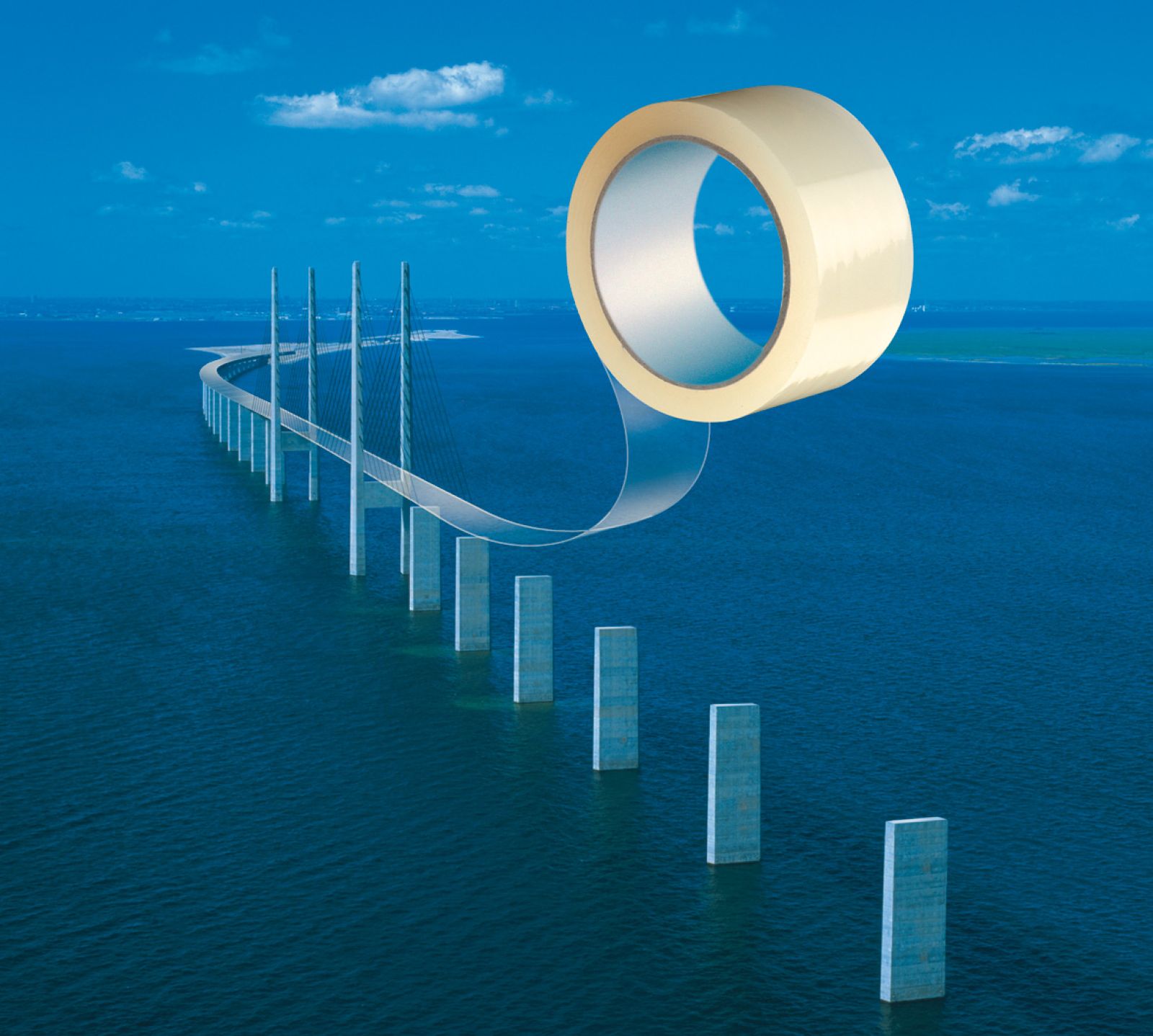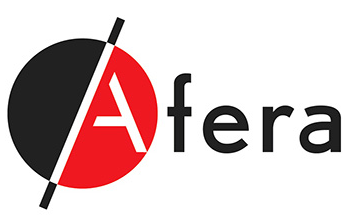
MS Polymer™-Based PSA technology
Overview:
- MS Polymer™ is a rather new technology to the PSA and tapes world, that can be used to make stronger, softer adhesives with high temperature and chemical resistance.
- MS Polymer™ can be used as an additive in the standard adhesive or as a base polymer.
- The polymer is compatible with rubbers, acrylics, resins and additives, meaning it can be easily formulated to achieve certain performances.
- The greatest difference with products common in the PSA and tape world is that crosslinking occurs through moisture-curing.
- The manufacturing challenges include requirement of warm/hot melt plus catalyst inline mixing, a heated coating station and a curing oven for production, along with a lack of available experience and benchmark products on the market.
- Co-operation among Afera partners Kaneka, ICHEMCO and Biessse is a good example of industry collaboration which will increase knowledge and facilities for utilising MS Polymer™ technology.
View the complete slide presentation from Afera’s Secretariat (members only)
Afera’s Turin conference presentation series
Using MS Polymer™ as an additive in the standard adhesive or as a base polymer
MS Polymer™ is little-known in the PSA or tapes world, but PSA R&D Specialist Michel Ravers believes it is an interesting technology, not only because it is solvent-free, but that it offers different performance characteristics from those of classic acrylics, silicones and rubber-based adhesives. “It is not a replacement technology,” he says. “It is something new, which can be used as an additive in the standard adhesive or as a base polymer.”
At Afera’s Turin Conference in October 2017, Mr. Ravers, who works in the MS Polymer division at Kaneka Belgium N.V., part of the Japanese international chemical manufacturing company, discussed the polymer’s properties, advantages and requirements, highlighting the collaboration among 3 Afera member companies which improves MS Polymer™’s usability in the PSA and tape industry.
 What is it exactly?
What is it exactly?
MS Polymer™ stands for “modified silicone”, although it is not entirely silicone-based. It has a polyether backbone with reactive silyl functionality (telechelic).There are 2 kinds: a dimethoxysilyl (DMS) with 2 reactive groups (each side) on it and a trimethoxysilyl (TMS) with 3 reactive groups on it, making it a faster curing system than the DMS type. The TMS polymer is a newer version which creates a more strongly crosslinked matrix during curing in order to make harder and stronger material.
The biggest difference with products common in the PSA and tapes world is that crosslinking occurs through moisture-curing. So by addition of a catalyst and subsequent contact with water, MS Polymer™ will start crosslinking and form a matrix structure. Besides the functionality, which can be altered by using either DMS or more reactive TMS, the polyether backbone can also be tuned by varying molecular-weight and branching. The polymer is telechelic, having 2 ends, but also a single-end version can be used as a kind of plasticiser. The product range includes a high-strength grade, meaning that the functional groups are even denser, creating even harder or higher-strength material. A mixture of polymers can be used to make many different kinds of products.
Why is it special?
 MS Polymer™ is a water- and solvent-free, clear, odourless solution and liquid at room temperature. It has low volatility and a low Tg. When it comes into contact with a catalyst and water, a crosslinked matrix is formed, providing good heat and chemical resistance. The polymer is fairly to very compatible with many rubbers, acrylics, resins and additives. In other words, it is very compatible with many components currently used in PSAs to make a tape.
MS Polymer™ is a water- and solvent-free, clear, odourless solution and liquid at room temperature. It has low volatility and a low Tg. When it comes into contact with a catalyst and water, a crosslinked matrix is formed, providing good heat and chemical resistance. The polymer is fairly to very compatible with many rubbers, acrylics, resins and additives. In other words, it is very compatible with many components currently used in PSAs to make a tape.
What can you do with it?
MS Polymer™ is mainly utilised in the adhesives and sealants world where it is a more common technology. Its applications include sealants and adhesives for construction, automotive and DIY, such as waterproofing, glazing and insulating.
Formulating routes: What makes the MS Polymer™ unique
It is fairly easy to generate a PSA adhesive using MS Polymer™, and how you use it lets you steer the performance of the adhesive toward certain application desires.
There are 2 main routes to making a PSA or tape based on MS Polymer™. The first is the easy route: using MS Polymer™ as an additive in a classic PSA formulation, such as an acrylic or rubber adhesive. The major effect is the increase in softness of the adhesive so that the wetting will be much better than with a normal (tackified) acrylic. It is not a resin, so it will not improve tackiness itself.
Because of the low Tg, the temperature range of application can be expanded. So MS Polymer™ is interesting to consider for low-temperature applications. In addition to this, the cohesive network is strengthened, so both the temperature- and chemical resistance of the adhesive are improved.
There may be other, less expensive ways to make a softer adhesive or one with improved temperature-chemical resistance. The 2-in-1 combination however, of making the compound softer while maintaining or improving temperature and chemical resistance, is MS Polymer™’s strength in using it as an additive in an adhesive.
The second way of utilising MS Polymer™ in a PSA is using it as the backbone, the base material for the adhesive. For example, 2 grades of MS Polymer™ can be combined: a high-molecular weight polymer producing the strong matrix; and a low-functional and low-molecular-weight polymer acting as a plasticiser. These can be combined with a (several)tackifying resin(s). The result is a wide range of possibilities depending on the ratio of the 3 components. Tack can go from 2 to 55 Newtons. Peel can go from 5 to 60 Newtons on stainless steel or polypropylene. Dynamic shear ranges from 0-1,500 Newtons, and the temperature resistance can go well above 220˚C, depending on the formulation.
What are the manufacturing challenges?
Basically you need warm/hot melt plus catalyst inline mixing, a heated coating station and a curing oven. Most manufacturers with standard coating lines for acrylics, rubber or silicone do not have all of these combinations in one facility.
Another, perhaps more significant, reason, is that the moisture curing process is not really common in the PSA world, so there is simply a lack of experience with the technology. There are few examples of MS Polymer™ being used on the market, and there are almost no benchmark products available. That it is relatively unknown sometimes makes it difficult for R&D technicians to decide to try it out.
How can we view Kaneka’s co-creation project with ICHEMCO and Biessse?
What Afera’s leadership and members have been discussing as an industry-wide issue is collaboration. Both the lack of knowhow and the infrastructure for utilising MS Polymer™ in the PSA and tapes industry has brought together Afera members Kaneka, ICHEMCO and Biesse. Their goals include increasing knowledge and materialising the lab developments and evaluations in roll-format for both pilot and production scale.
While Kaneka is the polymer producer and ‘service’ formulator, ICHEMCO is a formulator/compounder with a pilot line capable of producing MS-based material. This is helpful in testing formulations to better understand MS Polymer™ in PSA formulations. Biessse, which really believes in the MS Polymer™ technology, is adapting one of their lines so that  they can coat it on a production scale.
they can coat it on a production scale.
“The strength of this co-operation is that we are creating a complete overview of how to work with MS Polymer™ and bring it to production scale,” Mr. Ravers explained. “At the same time, each party still has the freedom to do their own thing with the benefit of obtaining the first knowledge of utilising this technology.”
About Michel Ravers
Belgian born, Michel Ravers started his career at Avery Dennison in 1990 as an R&D technician and worked his way through many levels of development engineering. After 26 years, he left Avery Dennison as application technical service engineer and joined Kaneka Belgium as a PSA R&D specialist. As industrial chemist, Mr. Ravers is a Lean Six Sigma Black Belt and has postgraduate degrees in project management, adhesive polymer science and rheology.
Questions and comments?
Michel Ravers
R&D PSA Specialist, MS Polymer Division
Kaneka Belgium N.V.
michel.ravers@kaneka.be
+32 485 94 17 82
Nijverheidsstraat 16
B-2260 Westerlo-Oevel
Belgium
www.kaneka.be

